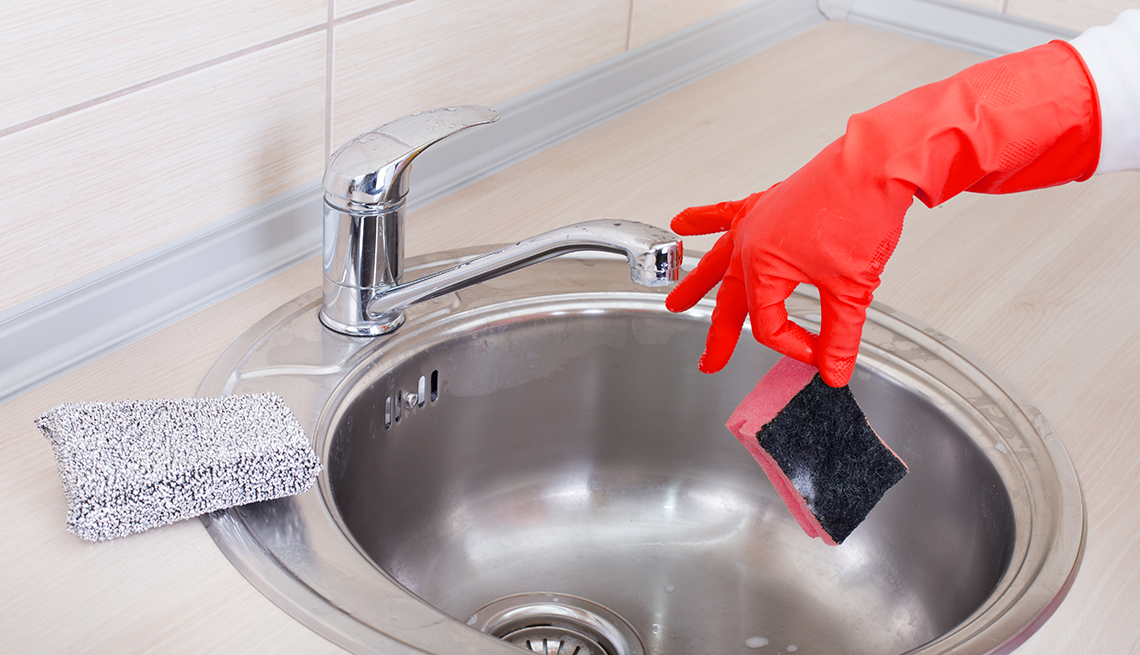Play all audios:
Dangerous bacteria can linger in a dish sponge even after attempts to sterilize it, according to a new German study published in the journal _Scientific Reports_. Researchers from Furtwangen
University described kitchen sponges as a "common microbial hot spot," _International Business Times_ reports. The study included DNA analysis of 14 kitchen sponges taken from
private households that found 362 kinds of bacteria, even more than typically found on a toilet. Because sponges are primarily moist and designed for absorption, they have the potential to
pick up bacteria like salmonella, E. coli and staphylococcus. Most of the bacteria found were not harmful, but there were pathogens that could cause infections in humans, the researchers
said. They also noted that "kitchen sponges not only act as a reservoir of microorganisms but also as disseminators over domestic surfaces, which can lead to cross-contamination of
hands and food, which is considered a main cause of foodborne disease outbreaks." Researchers also found that previously recommended cleaning methods, such as microwaving a sponge,
kills only about 60 percent of the bacteria. And some bacteria may even multiply after cleaning the sponge because the resistant strains recolonize. The study recommends that people replace
sponges weekly to reduce bacteria risk. Here are other germ offenders that you may not have thought about. TOOTHBRUSH HOLDER Your toothbrush holder is the third most germ-infested household
item, according to a study from NSF International, a nonprofit public health group based in Michigan. To keep it clean, close the lid on the toilet when you flush and put the holder into a
dishwasher on the sanitizing cycle once or twice a week (if it's dishwasher safe) to kill any germs. PURSES AND HANDBAGS A British study found that the average purse is three times
dirtier than an office toilet seat and that 1 in 5 handbag handles contain enough germs to pose a significant risk of cross-contamination from the handle to your hand. Nonleather bags can be
wiped down with an antibacterial cloth. For leather bags, wipe with a soft cloth and warm, soapy water. OFFICE DESK According to British cleaning company CSG, the most germ-ridden place in
an office is the telephone, with 25,127 microbes per square inch; followed by the keyboard, with 3,295 microbes; and the computer mouse, with 1,676 microbes. Use an antibacterial wipe on
your office equipment daily, and regularly wash or sanitize your hands throughout the day.

